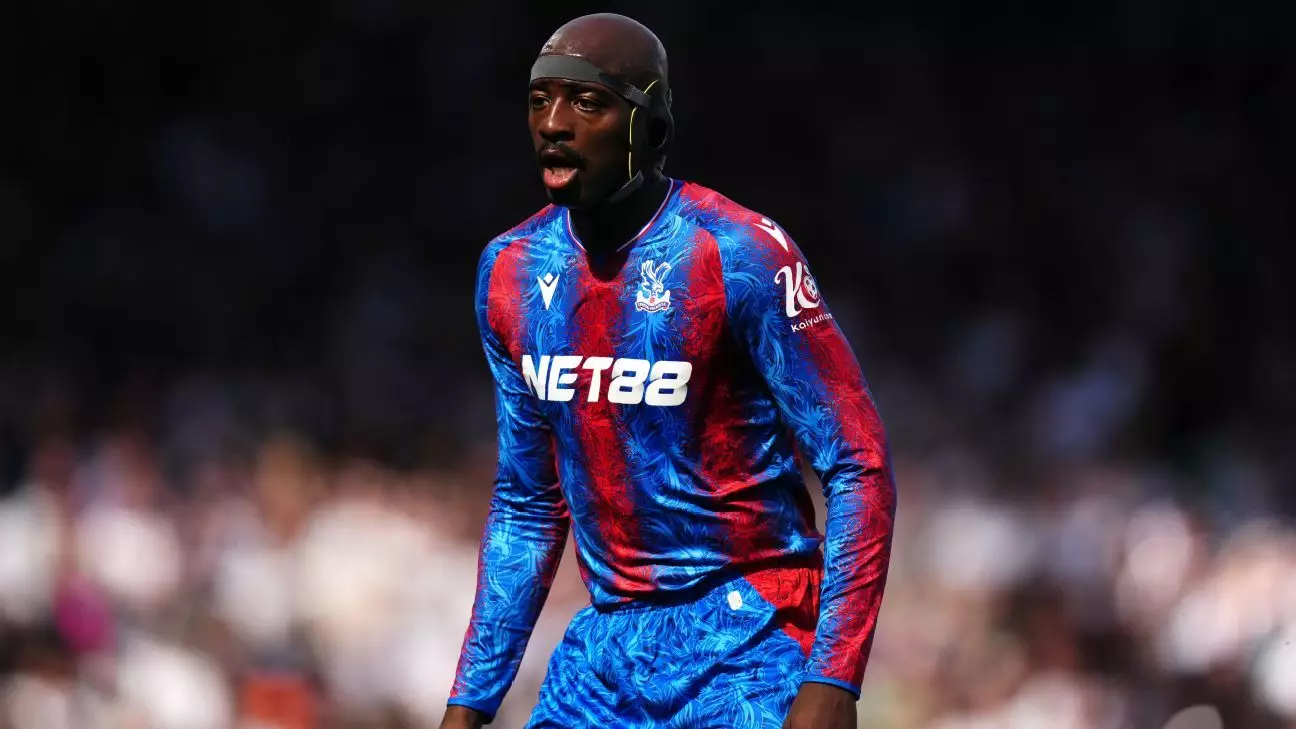Jean-Philippe Mateta’s return to the pitch after a horrific injury serves as a testament to the grit and determination found in professional sports. The Crystal Palace forward faced a hair-raising ordeal during a recent FA Cup match against Millwall, where a reckless collision with the opposition goalkeeper left him with a lacerated ear requiring a staggering 25 stitches. Such incidents are a stark reminder of the physical toll and unpredictable nature of competitive football, highlighting the vulnerabilities players often confront week in and week out.
In an interview with L’Equipe, Mateta shared the raw and harrowing details of that fateful moment. The athlete candidly expressed his fears that day—not merely for his ear but for the wellbeing of his skull. Such reflections illuminate a critical aspect of sports: the divide between bravado and reality. Many athletes endure unimaginable pain, pushing through injuries that might incapacitate the average person. Mateta’s recognition that his injury could have been much worse promotes a broader conversation about athlete safety and the need for stringent protective measures.
The Price of Glory
When the dust settled, Mateta’s sentiments echoed an undeniable reality: injuries are part of the game. Yet, the potential for severe outcomes from seemingly innocuous moments raises questions about how football clubs manage player health and safety. After undergoing surgery, which Mateta candidly described as intense—having been shown photographs of his injury he wished he hadn’t seen—it becomes evident that there are hidden costs to pursuing excellence on the field. The fact that the club did take swift action by ensuring Mateta’s safety speaks volumes about their responsibility to player welfare.
However, the repercussions were not confined to Mateta alone. Following the incident, Millwall’s goalkeeper Liam Roberts found himself at the center of public scrutiny. The backlash and threats he received after the unfortunate collision show how quickly opinions can turn toxic in the world of sports. It’s important to remember that this was a moment borne out of a desire to succeed, not an act of malice. Mateta’s understanding and compassionate response to Roberts—a character trait that fosters unity and sportsmanship—reminds us of the humanity often overshadowed by the competitive spirit.
Helmeted Heroics: Mateta’s Comeback
Fast forward to the present, and we find Mateta donning protective headgear in his return to the pitch against Fulham. This choice, while practical, also illustrates the challenges athletes face in overcoming both physical and psychological barriers. Football players rely on instinct, often leading them to charge into challenges without a second thought. Will Mateta’s experience impact his decision-making in future matches? One can only speculate, but his previous two weeks of isolation from the game likely weighed heavily on his psyche.
Manager Oliver Glasner’s comments about Mateta feeling comfortable in his new headgear reveal a sentiment that speaks to the character of both coach and player. A support system that prioritizes player health and confidence moves beyond mere concern—it’s about cultivating an environment that allows athletes to flourish after a traumatic event. The success of this approach hinges on the belief that safety equipment can be seamlessly integrated into the sport without compromising performance.
Furthermore, the club has been diligent in ensuring that Mateta’s protective gear is fully compliant with Premier League standards. This attention to detail reflects an evolving landscape within the sport, one in which player safety is becoming paramount—not just a tick-box exercise.
Restoration and Resolve
The broader implications of Mateta’s experience resonate throughout the football community. His words, expressing empathy for Roberts and underscoring that accidents happen during matches, challenge us to rethink the stigmatization of injuries. Mateta’s resilience and fervent desire to return to the game reflect a mindset that goes beyond mere personal ambition—it’s about the love for the sport itself, a drive that can inspire others to face adversity with courage.
With goals still in sight and a season to complete, Mateta’s narrative goes far beyond the stitches in his ear. It serves as a reminder that the essence of competition is not just about victory, but also a shared acknowledgment of the risks involved and the sportsmanship that should encapsulate the beautiful game.
As Mateta attempts to regain his rhythm and confidence on the field, fans will undoubtedly celebrate not just his goals, but the journey of a player who has shown us that resilience can turn adversity into inspiration.

